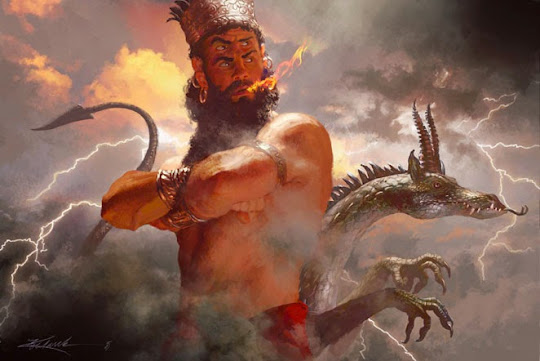I was helping the Boy with his homework last night and it got me thinking.
His sixth-grade class is studying ancient Mesopotamia, and the question for discussion last night was "learn about monotheism and polytheism and their effects on society" in the context of the early irrigation civilizations of the Tigris and Euphrates valleys. The "book solution" was that a) the early Sumerians and Akkadians had a pantsload of gods that b) affected every aspect of their civilization, from architecture to social organization.
The kids' textbook didn't continue, but being who I am I had to follow the trail a little further. What I found based on a cursory look over the Internet was that c) the actual documentary evidence for early Mesopotamian religions is pretty skimpy - most of what we "know" is inferred from fairly fragmentary sources - and d) what consensus there is suggests that the "Sumerian" civilizations were solidly polytheistic - that is, that the peoples of the earlier inhabitants of the region centered around Sumer had a God of Bunions and another god for wheat and another for oral sex or whatever and they were all pretty much equals - but that as the "Akkadians" took over (that is, Babylon became the Big Ziggurat) a handful of the "bigger" deities tended to become, well, bigger. The various secondary sources seem uncertain as to how much this actually approached "monotheism" but agree that the result was somewhat different in both form and function from the earlier godly free-for-all.
The implication in the Boys' text was that this change in religion caused a change in society; gods first, people after.
But being the godless heathen I am I wonder; wouldn't it make just as much sense the other way around? If gods are - as I suspect they are - more a reflection of the people who imagine them why shouldn't the changes in civilizations result in a change in gods?
My brief understanding of the difference between the "Sumerian" and "Babylonian" (or "Akkadian") civilizations is that the latter was more centralized, and that the Akkadian rulers were more god-like god-kings than the earlier Sumerian versions; that Sumer was a bunch of city-states and that Babylon was Babylon and a bunch of tributary cities.
So why wouldn't it make sense for someone who looked at his or her society and saw that kind of heirarchy all around imagine the heavens as similarly organized? If your little city is just one among many it'd make sense that your city's gods were, too. If your city was the Big Pomegranate why shouldn't your god be the boss of the other cities' gods?
Makes sense to me, anyway, but I know from Mesopotamia what I know about Croatian poetry. Well, other than the Great Whore of Babylon because...well, because. It took everything I had in me not to sing the Boy the Crocodile Hotel Blues. I'm a Bad Dad that way.
Anyone with a bigger brain and more knowledge have ideas on the subject?



3 comments:
The Akkadians weren't so much 'centralised' as under the rule of one man. Sargon of Agade (which remains undiscovered) manage to impose his will over all of the other city states and put all of Mesopotamia under his rule. Which lasted a little over 100 years before those damn hill people (it's always those damn hill people) sacked Agade and brought the empire down.
Well, there was the Babylon of Hammuari's time, too, if you count that. What I got was that in general the "later" people of the Fertile Crescent tended to be more heirophantic - their kings and emperors were morethan just local "big men"; they were real no-shit god-kings with all the trappings. And that seemed tailor-made to start a society that began with a god of shoelaces and another for clay pots into one that had a god who was THE god and everybody else's "gods" were just demons n' shit.
At least, that seemed to me to be at least as reasonable as assuming that the priestly classes of the Akkadian cultures developed Marduk & Co. as mega-gods and that impacted Mesopotamian society such that the god-king/empire/rigid heirarchy developed from it...
But I just don't know enough about the damn Mesopotamians to be able to feel confident about it one way or the other...
A general view of monotheism vs polytheism is Jonathan Kirsch's "God Against the Gods" -- it addresses some of the issues, say of Babylon, thru the eyes (and writings) of the famous "ancient" monotheists -- the Jews who went into exile there.
Post a Comment